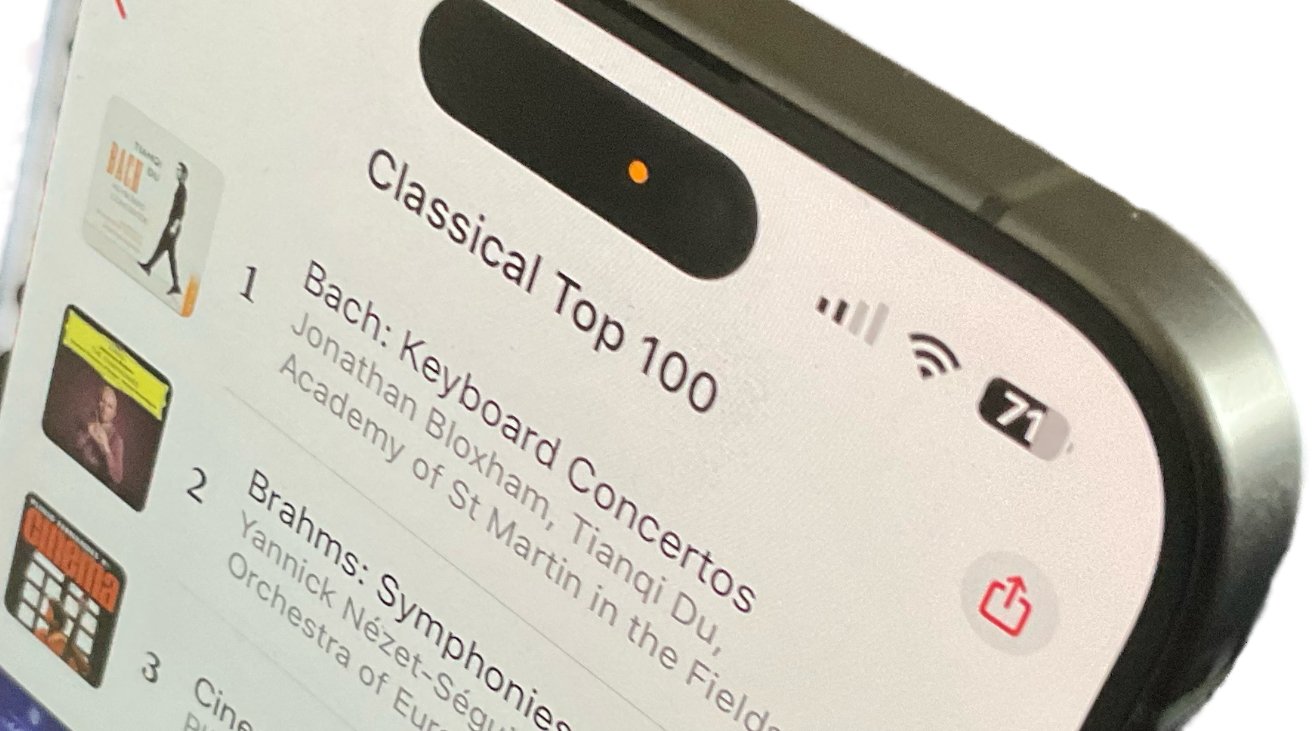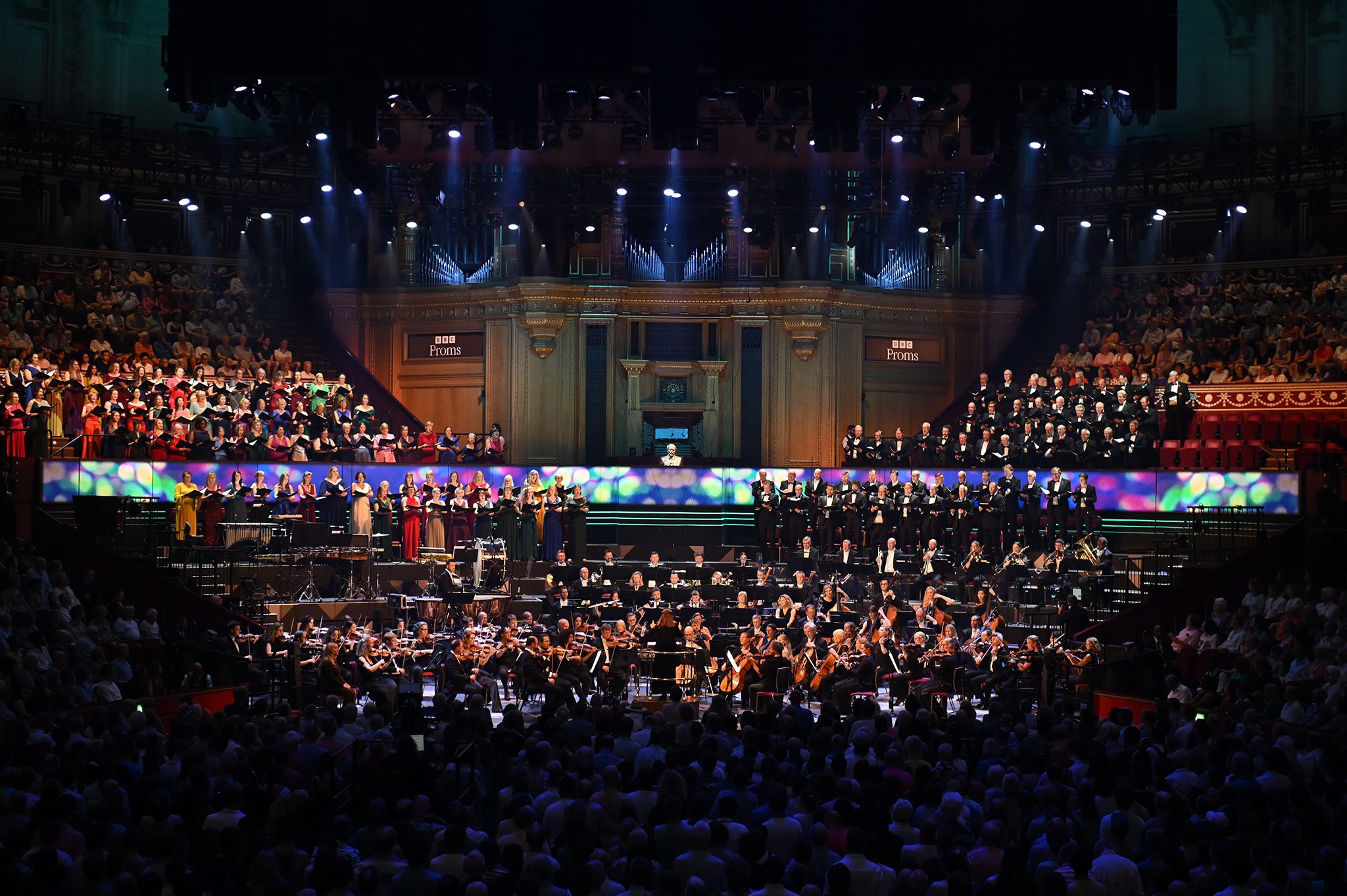Am I the kind of classical music fan that is at the heart of classical music’s problem?
A number of unexpected things occlude my usual unbridled enthusiasm at the start of this year’s Proms season.
Back at the press launch in April I’d already concluded this wasn’t looking to be a great year for the Proms. This was partly because I had already identified a question I wanted to answer : how do my feelings about the Proms change between season launch and the First Night? Does the brochure still have the impact it once did? Would I still pore over it? How would my feelings change come the First Night?
That’s the angle for me this year: is there a critical point in time in the season when the cynicism wanes and joy steps in to take its place?
I’ll get back to you on that. It’s not happened yet.
Changing things for the better … kind of
The classical music world is going through a significant change it seems to me.
That’s not altogether a bad thing, of course. Those with clout (usually big budgets) are bringing a commercial mindset to the sector. Marketing and PR is getting classical music talked about more by a wider group of people.
But there is a flipsidee.
The redefinition of the classical music genre by the commercial sector to include more musical styles (there’s a parallel with the Proms season as a whole this year) isn’t for me about social mobility, diversity or accessibility. It’s purely to do with increasing sales which is made more possible by widening the scope of the content.
If it can be monetised and it has an orchestral instrument in it somewhere, then we can call it classical. No one will care because no one will notice. We’ll drown out the detractors. They’re just enthusiasts.
The closer connection between record industry and BBC Proms is coming more into focus for me this year too.
This is more of an assumption on my part (which I’ll happily flag in advance) which will no doubt underpin my enjoyment or otherwise of the season as a whole. I see a closer connection between Decca and the BBC – seen in the BBC Young Musician signings post-competition, and various on-screen ‘practitioners’ meteoric rise despite them only being at the beginning of their musical development. The knowledge and experience they bring to mediating a concert seems quite low. This doesn’t matter it seems.
This isn’t envy on my part (though I get that some people might think that). I just see some of the presenting talent this year as being record industry ‘property’ first and foremost, and that their appearance on-air is as much about increasing visibility for the record label as it is about supposedly reaching out to a young audience for the BBC.
In short, I remain unconvinced that putting A Young Person in front of a camera with a microphone is really all that’s required to get young people interested.
Even before the Proms has started this year, it is the way we’re packaging up the classical music world to make it ‘appealing’ that makes me assume that I’m going to feel distant from this year’s season – that I’m not the target audience.
The Proms is an epic battle
There’s more. I’m sorry. There’s more.
I see a fractious classical music world at the beginning of this year’s Proms season too, one distinctly unable to hold disparate views about the way it works now and the way it could work in the future. A classical music world coalescing around big names, backing entertainment rather than artistic endeavour, all of it part of a grand if hollow call to arms to make genre more ‘accessible’.
People with big budgets and only a little expert knowledge, dismissive of knowledge, convinced that the audience will be put off by any mention of knowledge, or what it takes to be an elite performer, for example.
And a classical music world where anyone who challenges anything that doesn’t quite sit right for them being accused of being the cause of that stuffy problematic world the great and the good are trying to deal with once and for all.
So, I see this year’s Proms as an epic battle. And I fear I am going to get to the end of it and conclude that it is because I’m passionate advocate of it, that I am seen as part of classical music’s present-day problem.
That Phase Eight Thing (and other stories)
Some may interpret this rather odd stance to what happened yesterday – the Phase Eight thing (see below).
In actual fact, it’s not the cause of this post, but yesterday’s nonsense does rather encapsulate everything I’ve been thinking for a while now.

Phase Eight’s digital content plan included one Tweet aligning the brand with the BBC Proms. “If you’ve got tickets for the Proms you’ll need a dress.” Or words to that effect.
It was a spectacularly odd and for me after an evening out with a pal during which I had one or two sherries, massively idiotic message to put out. One tweet that illustrated the assumptions people outside the classical music world make. A tweet that sought to raise awareness of the brand (laudable) and succeeded in the wrong way, for them and only sought to reinforce misrepresentation. Fodder for people like me.
Enthusiasts are the problem
What I noticed yesterday was something fairly predictable I suppose for our day and age, but also rather saddening.
After the initial guffawing had died down, the opposing view was inserted into the discussion about how it was good that a brand was talking about classical music, and we should stop before slagging people off because there’s a person behind the account, etc etc. And then after that the back-biting.
One tweet in particular shifted the attention to somewhere entirely different.
“Nothing says ‘classical music is welcoming and non-elitist’ like mocking a simple misunderstanding … if classical music dies it will be the enthusiasts that kill it.”
Alexandra Coghlan, 18 July 2019, 3.12pm
I see the perspective. I appreciate seeing this from Alexandra’s perspective. Indeed, this one tweet alone prompted me to reflect on whether I had something to pedal back from late last night. The outcome of that particular executive board meeting prompted me to conclude that on balance, I don’t because we all of us have different views and that the classical music world should be robust enough to play host to those different views.
But it also reminded me of the division which is laid bare – perhaps not because of the Proms, but more to do with social media and the age that we live in. It is now common for the ‘originating issue’ to quickly morph into tribal spats. As the discussion progresses or breaks down (you decide which it is) so we move further away from the thing that actually unites us all. I used to think that classical music provided an escape from the hideousness of the rest of the world. Now I can see its been just as susceptible as every other avenue of pleasure I’ve naively skipped down.
Enthusiasts rock
Enthusiasts are vital for this art form.
It is because you’re an enthusiast for a subject that you picked up and progressed with an instrument in the first place. It’s probably what propelled you through the education you received and perhaps what motivated you to study more in depth in higher education. Being an enthusiast is what drives many adults to return to music-making later in life – something that has resulted in a university friend of mine becoming a highly successful professional musician since graduation. And importantly for me, it is because of enthusiasts that we have passionate debate, that shifts in how the thing we profess to care about are challenged or celebrated.
Enthusiasts care about the thing they’re enthusiastic about. In other areas of entertainment, say for example the Eurovision Song Contest, enthusiasts have been at the heart of a brand’s revival. That the Eurovision is the commercial operation it is today (and a potent brand for the European Broadcasting Union) is testament to the positive sheen an enthusiast can bring to something. It wasn’t always so.
There was a time – not so long ago – when the Prommers in the arena were the focus of the criticism about classical music world. They were the lightning rod the societal discussion about everything that was wrong (and right) with the Proms and the classical music world. As marketers widen classical music’s appeal and reach, so the arena for discussion and the subjects fought over in it widen to include all sorts of different people.
Maybe that means that classical music appreciation has just grown up a bit, finding itself in the big wide world with all aspects of it vying for attention just like anything else right now. If that’s the case, that makes the Proms this year feel like a potential ordeal. Probably best just to listen on the radio in that case.



